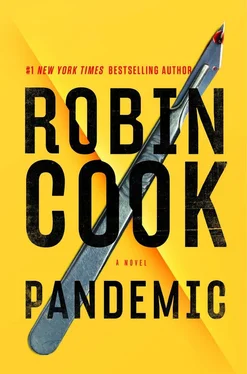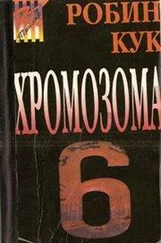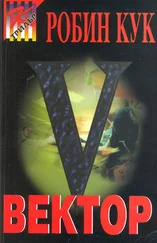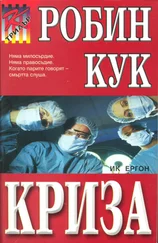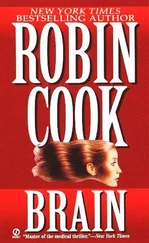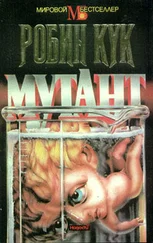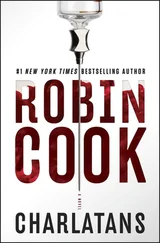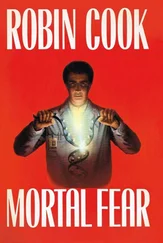This book is dedicated to the mystical clairvoyance that some gifted scientists have, which allows them to look at data available to all and see diamonds in the rough, resulting in a scientific quantum leap forward. Such is the case with Jennifer A. Doudna and Emmanuelle Marie Charpentier, who are responsible for the gene-editing technology CRISPR/CAS9 and its evolving permutations.
On the warm summer day of August 17, 2012, the newly released issue of Science magazine contained an article about bacterial immunity with a title so esoteric that late-night talk-show hosts could have used it in their monologues to make fun of scientific gobbledygook. But the article’s publication has turned out to be an enormously important biological watershed event, despite the modest prediction offered in its concluding sentence that the mechanisms described therein “could offer considerable potential for gene targeting and genome applications.” [1] “A Programmable Dual-RNA-Guided DNA Endonuclease in Adaptive Bacterial Immunity” by Martin Jinek, Krzysztof Chylinski, Ines Fondara, Michael Hauer, Jennifer Doudna, and Emmanuelle Charpentier, Science, vol. 337, pages 816–21.
Seldom has there been such an understatement, as the potential has already become a virtual explosion of applications. The Science article was the first to introduce the world to a biologically active chimeric molecule called CRISPR/CAS9, which had been engineered from a bacterial immune system that had evolved to counter viral invaders. This extraordinary molecule made up of three easily produced and inexpensive bacterial components can be custom-tailored to seek out and alter genes in plants or animals. All at once, even a high school student armed with readily available low-cost reagents and a little instruction could learn to modify the genetic makeup of living cells, which can pass on the changes to daughter cells. With CRISPR/CAS9, any gene whose sequence is known can be removed, replaced, turned on, or turned off, and all this can be done in the equivalent of someone’s garage. It is that easy. Heretofore, such a capability existed only in the futuristic dreams of academic molecular biologists with huge, expensive laboratories at their disposal. In other words, rather suddenly, CRISPR/CAS9 has emerged as an enormously powerful, democratized gene-editing mechanism capable of rewriting the fabric of life, including human life. There is no doubt that this capability will revolutionize medicine, agriculture, and animal husbandry.
But there is a dark side. The ease and availability of this versatile and powerful tool that puts the power of the creator in the hands of so many unregulated players beget as much peril as promise. With so many potential actors involved, the situation is even more worrisome than it was in nuclear physics following the splitting of the atom, because in that instance few people had access to the necessary raw materials and equipment to experiment on their own. With CRISPR/CAS9 the question becomes whether future experimenters, be they world-renowned biologists, well-funded entrepreneurs, or high school students, will be more moved by ethical concerns or by the opportunity to maximize their own individual advantage or by whim, with little or no concern for the consequences to the planet and to all of humanity. Pandemic is the story of such danger.
WEDNESDAY, APRIL 7, 1:45 P.M.
Twenty-eight-year-old David Zhao took the cloverleaf exit off Interstate 80 onto New Jersey 661, heading south toward a small town called Dover tucked away in the relatively rural northwestern part of the state. He knew the route well, as he had traversed it hundreds upon hundreds of times over the previous five years. With relatively light midday Wednesday traffic it had been a quick trip, accomplished in a little more than an hour. As per usual, he’d picked up the interstate right after crossing the George Washington Bridge. He’d come from the Columbia University Medical Center in upper Manhattan, where he was a Ph.D. student in genetics and bioinformatics at Columbia University’s Department of Systems Biology.
David was driving alone, as he usually did when he went to Dover. Also as per usual, it was a command performance by his imperious father, Wei, who, if truth be told, was somewhat of an embarrassment for David. Like a lot of successful Chinese businessmen, Wei had been given the opportunity to ride the crest of the economic miracle that modern China represented. But now that he’d become a billionaire, he wanted out of the People’s Republic of China, as he had come to much prefer the more laissez-faire business environment of the United States. To David, such attitude smacked of treason and offended his sense of pride in his country’s extraordinary progress and uninterrupted history.
David’s given name was Daquan, but when he was sent by his father to the United States nine years ago to study biotechnology and microbiology at MIT, he needed a Westernized name, as Zhao Daquan wasn’t going to suffice, especially in the normal Chinese order of family name first. He needed an American name so as not to confuse people or stand out, as he knew how much discrimination played a role in American society. To solve the problem, he Googled popular boys’ names in the United States. Since David started with the same two letters as Daquan and also had two syllables, the choice was simple. Although it took some time to adjust to the new name, now that he had, he liked it well enough. Still, he was looking forward to reverting to Zhao Daquan when he returned to China. His game plan was to move back there when he finished his Ph.D. the following year and eventually run his father’s Chinese biotech and pharmaceutical companies, provided they were still there. David’s biggest fear was that his father might succeed in moving the totality of his operations out of the People’s Republic.
On the secondary road, David made himself slow down. He knew he had a heavy foot, especially when it came to the new car that his father had given him for his last birthday, a matte-black Lexus LC 500 coupe. David liked the car but wasn’t thrilled with it. He had specifically told his father that he wanted a Lamborghini like another Chinese graduate-student friend of his had been given, but in typical fashion, his father had ignored the request. It was similar to how the decision had been made for David to come to the United States for college. David had expressly said that he preferred to stay in Shanghai and attend the Shanghai Jiao Tong University, where his father had gotten his graduate degree in biotechnology. But his father had ignored David’s feelings. David doubted that his father ever realized that David might have a different point of view on any subject. In that sense, his father was very old-school, demanding unquestioning filial piety.
Turning off NJ 661, David slowed down even more. He’d already gotten more than his share of speeding tickets in New Jersey, so many that his father had threatened to take away his car. That was the last thing that David wanted, as he enjoyed driving. It was his escape. He was now on a rural road surrounded by fields that were just beginning to turn green, interspersed with stands of leafless forest. Within a few miles the first part of his father’s considerable entrepreneurial domain came into view. Dover Valley Hospital was an impressively modern private hospital currently nearing completion after a total renovation. In its previous incarnation, it had been a small, aging community-hospital-cum-nursing-home that David’s father had purchased out of bankruptcy. Once Wei owned the property, he began pouring capital into it, to the surprise and delight of the surrounding towns.
Читать дальше
